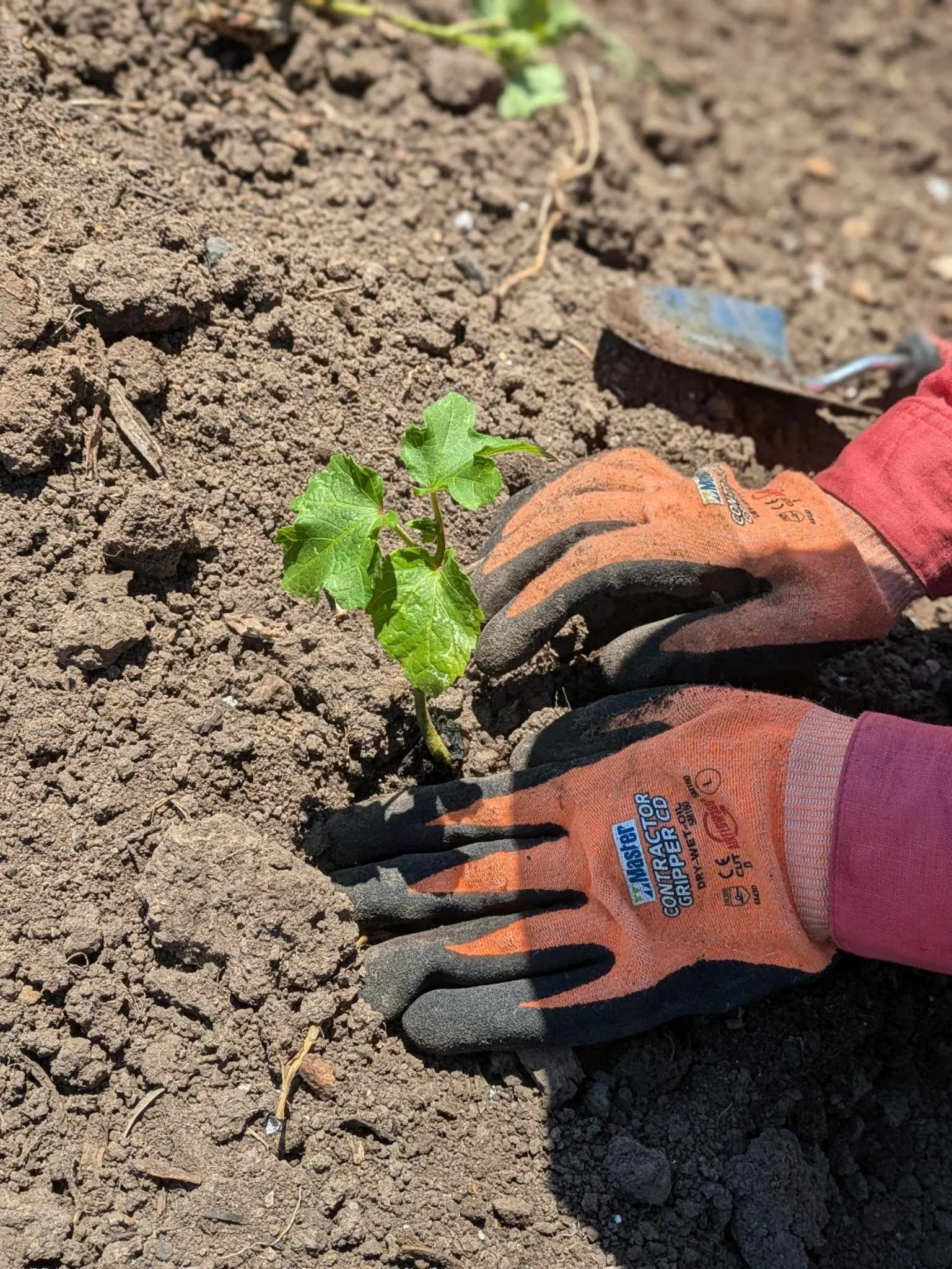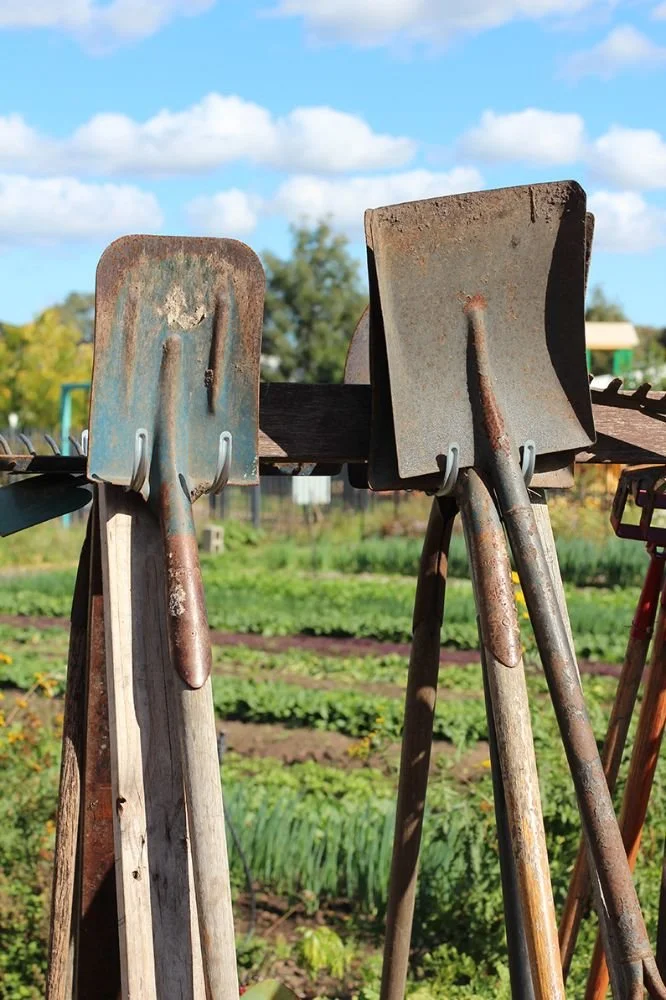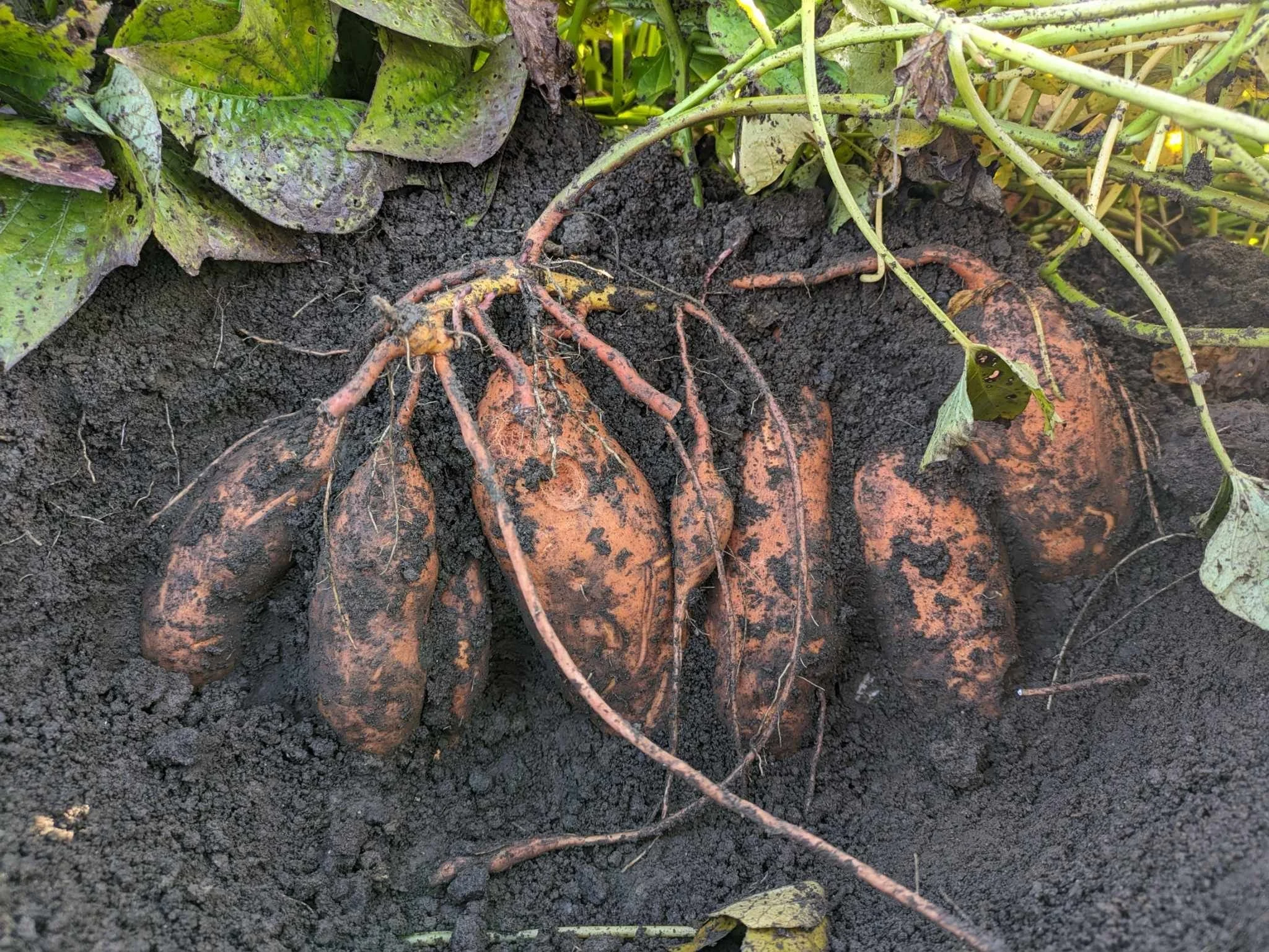Dig in!
Get your class active and engaged in food systems and sustainability.
BOOKINGS OPEN FOR 2025 & 2026!
Farm Raiser’s Spring/Summer Excursion Programs offer immersive, hands-on learning experiences tailored for students from prep to Year 6. Age-specific programs blend soil science, food sovereignty, sustainable farming and urban biodiversity through engaging activities such as composting with worms, planting native and culturally significant crops, and pollinator identification games.
Guided by enthusiastic farm educators students explore key environmental concepts while earning “Farm Pass” stamps for completing tasks. The programs foster curiosity, cultural appreciation, and environmental stewardship, inspiring students to connect with nature and reimagine food systems in urban spaces. Young learners are encouraged to appreciate the complex role that agriculture and food growing can have in nurturing healthy communities while empowering them with valuable knowledge about food sources, sustainability, and environmental stewardship.
For high school classes or to bring other student groups please email learn@farmraiser.com.au so that we can develop an excursion specifically for your curriculum!
PROGRAM DETAILS
-
Develop an understanding of the roles of producers, consumers, decomposers, and pollinators within food systems and ecosystems.
Investigate how soil health, composting, and sustainable farming practices contribute to food production and environmental resilience.
Explore the cultural significance of food crops and the role of community gardens in supporting inclusive and diverse communities.
Apply observation, classification, and recording skills to real-world environmental settings through hands-on, inquiry-based activities.
Reflect on individual and collective actions that can support biodiversity, reduce food waste, and build more sustainable urban environments.
-
Please download the individual program packs for each year level below to see curriculum links in the context of the the programming.
Foundation – Year 2
Science – Biological Sciences
AC9S1U01 – Describe the properties of materials and how they change through processes.
AC9S1U02 – Describe how living things have a variety of external features and live in different places.
VCSSU042 – Living things grow, change and have offspring similar to themselves.
VCSSU043 – Living things live in different places where their needs are met.
Geography / HASS
AC9HS1K03 – Identify features of places and how they can be cared for.
VCGGK069 – Places have features and can be represented at different scales.
Literature / English
AC931LE01 – Identify how texts reflect personal and familiar experiences.
Years 3 – 4
Science – Biological Sciences
AC9S3U01 – Examine how living things depend on each other and the environment to survive.
AC9S4U01 – Investigate how living things have life cycles and depend on each other and the environment.
VCSSU056 – Living things can be grouped on the basis of observable features and can be distinguished from non-living things.
VCSSU057 – Living things have life cycles.
Science – Earth and Space Sciences
AC9S3U02 – Investigate the properties of soil, including its formation and importance to plant growth.
Geography / HASS
AC9HS3K01 – The location and characteristics of places and how they change.
AC9HS4K05 – The importance of environments to animals and people, and different views on environmental sustainability.
VCGGK083 – Similarities and differences in environments, including vegetation, climate and human interaction.
Intercultural Capabilities
VCICCD007 – Describe how cultural practices and beliefs influence people’s lives.
Years 5 – 6
Science – Biological Sciences
VCSSU060 – The growth and survival of living things are affected by the physical conditions of their environment.
AC9S6U01 – Investigate how living things can be grouped and classified based on observable features and their interactions.
ACSSU094 – The growth and survival of living things are affected by the physical conditions of their environment.
VCSSU073, VCSSU074, VCSSU075 – Interactions between organisms, physical conditions, adaptations, and human impact on environments.
Geography / HASS
ACHASSK113 – The importance of environments and strategies to sustain them.
VCGGK082, VCGGK083 – Environmental characteristics and their significance to people.
VCGGC085 – Influence of people on the environmental characteristics of places.
Intercultural Capabilities
VCICCD007 – Describe how cultural practices and beliefs influence people’s lives.
Literature / English
VC2E5LY09 – Identify language features in imaginative texts and how they reflect contexts and cultures.
-
Wednesdays & Thursdays throughout the school term
10am -2pm
-
Maximum 30 people per class, including supervising adults.
One farm educator will be with you for the duration of your farm visit. This educator can be included in adult to student ratios but will not be responsible for student behaviour
Minimum adult to student ratios:
Early Childhood- 1:5
Foundation - Year 2- 1:8
Year 3-6- 1:10
-
Farm excursions begin at $600 for a regular class visit (around $25pp). In some circumstances we are able to provide flexible pricing for low SES schools. Please reach out if you would like to discuss options.
Please email learn@farmraiser.com.au to discuss bringing non-typical school groups such as environments groups
-
DOWNLOAD OUR CURRICULUM INFO PACKS
F - 2
This introductory program for Foundation to Year 2 students supports early learning in biological and earth sciences through hands-on exploration of compost, planting, and pollination. Students investigate soil properties, observe decomposers, and plant native wildflowers to take home. The program reinforces key curriculum areas by encouraging observation, sensory engagement, and simple scientific recording, while introducing students to the role of urban farms in supporting ecosystems and food production.
Aligned with the Years 3–4 science, geography and intercultural capability curriculum, this program deepens students’ understanding of living systems, decomposition, food webs, and sustainability. Through guided activities including compost sorting, community garden design, and pollinator observation, students explore the relationship between food systems, cultural identity, and local environments. The program supports inquiry-based learning and links classroom content to real-world applications in urban agriculture.
Designed for Years 5–6, this program engages students in practical science and geography curriculum content including soil science, sustainable land use, biodiversity and environmental problem-solving. Activities include urban environmental risk assessments, culturally significant food crop planting, and pollinator habitat creation. Students apply critical thinking and teamwork to design solutions, make observations, and reflect on how regenerative farming can address challenges in urban food systems.
3 & 4
5 & 6










